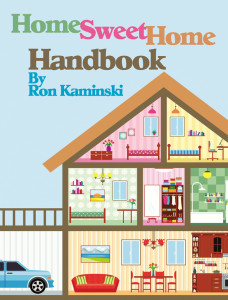Remember the good ol’ days when the American Dream could become a reality by simply coming up with 20% down? Oh sure, 20% down wasn’t easy, but with a few years of diligent savings, some help from Aunt Betty, and accepting the fact that your starter home wasn’t going to be your dream home, people did it.
And then something changed. Suddenly everybody could become a homeowner. How about 5% down or better yet, how about 0% down? People who had no business becoming homeowners were quickly signing on the dotted line, and it was all fun and games until the dream became a nightmare. Lives were destroyed, banks failed, and the Great Recession of 2008 was born.
That was seven years ago, about the time it takes for foreclosures and bankruptcies to cycle off a credit report, so guess who’s back? Boomerang Buyers, poised to make a huge comeback in the world of home ownership. But what’s going to keep us from repeating the mistakes of a decade ago? It helps that mortgages are harder to get again, with down payments of 30% or more the new normal. But beyond that, hopefully we all learned a valuable lesson from our errors: buying a home is not for the uninformed.
The Home Sweet Home Handbook by Ron Kaminski, MBA, JD and legal real estate appraiser  specialist, is the complete guide to buying and selling a home. It would have been a handy tool to have back when everyone was signing their lives away, but as Kaminski says, “Buying and selling a home is kind of like arranging a funeral; too often, decisions are based on emotion with a rush to get things done.” And unfortunately, the real estate industry, like other occupations, has its fair share of lazy, careless, ignorant, and unscrupulous people who masquerade as real estate salespeople, mortgage loan officials, appraisers, home inspectors, and so on. You, the buyer/seller, have to know what you’re doing.
specialist, is the complete guide to buying and selling a home. It would have been a handy tool to have back when everyone was signing their lives away, but as Kaminski says, “Buying and selling a home is kind of like arranging a funeral; too often, decisions are based on emotion with a rush to get things done.” And unfortunately, the real estate industry, like other occupations, has its fair share of lazy, careless, ignorant, and unscrupulous people who masquerade as real estate salespeople, mortgage loan officials, appraisers, home inspectors, and so on. You, the buyer/seller, have to know what you’re doing.
The Home Sweet Home Handbook takes the complex issues of home buying and selling, breaks them down, and gives the average buyer or seller, as much, if not more information than the so-called professionals in whom they are putting their trust. It will tell you of your rights, your responsibilities, what key questions to ask your real estate professional or lender, and how to avoid fateful consequences before embarking on this expensive proposition.
ALIVE Magazine: Why did you write the Home Sweet Home Handbook?
Ron Kaminski: I began writing for my own self-knowledge as I was specializing in appraisal work for attorneys and accountants. It also became a reaction to the savings and loan mess 25 years ago, followed by the greater mess leading up to the Great Recession of 2008. I wanted to capitalize on my nearly 30 years of training and experience by memorializing my thoughts about real estate and the appraisal of real properties.
AM: Who is your audience?
RK: Anyone who deals in residential real estate, including buyers, sellers, appraisers, realtors, financial advisers, landlords and tenants. Knowledge is power and education is the best way to participate in the largest industry in the USA.
AM: What makes your book unique?
RK: It’s more inclusive and not devoted only to specialized topics. Furthermore, additional information will be available in future editions that will add to the glossary sections and will touch upon collateral matters that are part of residential real estate. For instance, what is the value of ownership in a good school district? What are the pros and cons of reverse mortgages? What new laws and regulations are coming up in the future?
AM: You have quite a diverse background…
RK: Yes, well years ago I took a four-day aptitude course at the Johnson and O’Connor Institute and discovered that I had the necessary skills to be a lawyer, detective, reporter, or appraiser; careers that require organization, investigation, communication, and analysis. Apparently, people tend to use their hands or their brains in their work, but a small percentage of us need to use both at the same time. I like getting out in the field, but I also like putting on a suit to testify in court and then coming back and working out the details to produce a good report.
AM: When things go wrong in real estate, they go terribly wrong. Why is that?
RK: When times are good, most people tend to be more optimistic and less careful because values everywhere are rising. This creates a wealth effect whereby people take more chances with their money. It then attracts more people to get into real estate as brokers, agents, appraisers, etc., with more motivation to jump on the bandwagon and get rich quick. It takes a stronger will power not to get swept away in the euphoria. Recently, the regulatory officials were asleep, sometimes operating deliberately slowly for their own monetary gain, and the politicians didn’t resist the heavy pressure from the financial big shots. Before you know it, the federal laws from the Great Depression were scrapped so that financial organizations could benefit from great wealth for their executives until the value balloon they created, burst.
AM: What are the most important parts of the Home Sweet Home Handbook?
RK: It depends on what you’re doing. If you’re in the market to buy, there’s a section just for you. If you’re selling, looking for a contractor or a mortgage, there are appropriate sections to go to first. You can always read the other chapters later, if you wish.
AM: Does the book provide foundation information?
RK: Yes, in chapters devoted to the nature of property; what constitutes value; who are principals and agents; what economic principles affect residential property, etc.
AM: What about guidelines for various aspects of real estate?
RK: I’ve designed it so that readers can copy out materials in the glossary to use when they’re house hunting, looking for a mortgage, choosing a contractor, etc.
AM: And what about changes that occur regularly in real estate?
RK: The book will always be evolving, so I invite reader comments and criticisms to keep it current. Thanks to the Internet, changes can be made quickly and then offered to the readers.
AM: What about specific legal advice?
RK: I don’t offer it since local laws and regulations and state and federal rules can change or be created. For specific advice, I recommend the reader enlist the help of a local attorney, agent, etc. The Home Sweet Home Handbook is designed to make the reader think about matters they should know before jumping into the market. It’s easy to get caught up in the thrill of home ownership. I want my readers to enjoy the process, but they’ve got to know how to play the game. Knowledge is power.
AM: What’s the best advice you can give boomerang buyers and first-time home buyers?
RK: Buyers and sellers need to know how to select the 20% of all real estate professionals who do 80% of the business due to their training, initiative and personal integrity– the ones who are still in business well after the crash. If you’re in the market to buy or sell property, do yourself a favor and get a copy of Home Sweet Home Handbook. Don’t leave home without it. Really. Don’t.
Home Sweet Home Handbook is published by ALIVE Book Publishing and is available September 1, 2015 at homesweethomehandbook.com.



